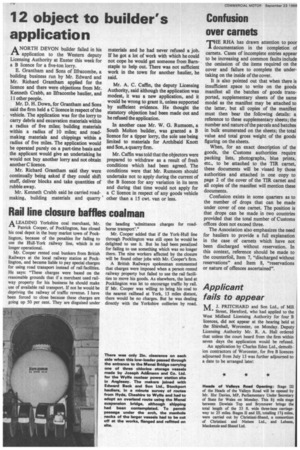Rail line closure baffles coalman
Page 78

If you've noticed an error in this article please click here to report it so we can fix it.
ALEADING Yorkshire coal merchant, Mr.
Patrick Cooper, of Pocklington, has closed his coal depot in the busy market town of Pocklington, because of the penalties for failing to use the Hull-York railway line, which is no longer operational.
Mr. Cooper rented coal bunkers from British Railways at the local railway station at Pocklington, and became liable to pay special charges for using road transport instead of rail facilities. He says: "These charges were based on the reasonable grounds that if a merchant used railway property for his business he should make use of available rail transport. If not he would be depriving the railway of traffic revenue. I have been forced to close because these charges are going up 50 per cent. They are disguised under the heading `admittance charges for roadborne transport'," Mr. Cooper added that if the York-Hull line through Pocklington was still open he would be delighted to use it. But he had been penalized for failing to use something which was no longer there. The nine workers affected by the closure will be found other jobs with Mr. Cooper's firm.
A British Railways spokesman commented that charges were imposed when a person rented railway property but failed to use the rail facilities to move his goods. As elsewhere, the land at Pocklington was let to encourage traffic by rail. If Mr. Cooper was willing to bring his coal to the nearest railhead at York, 13 miles distant, there would be no charges. But he was dealing directly with the Yorkshire collieries by road.








































































































































































































































































































































































